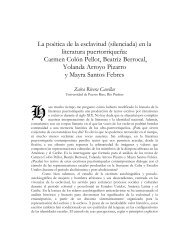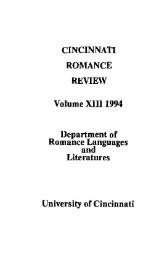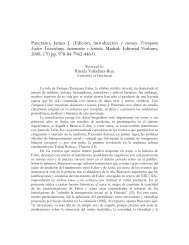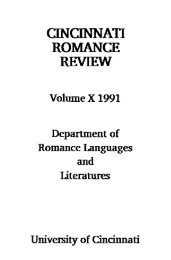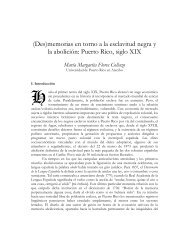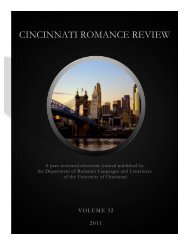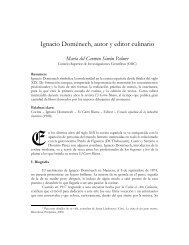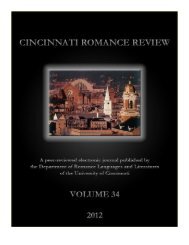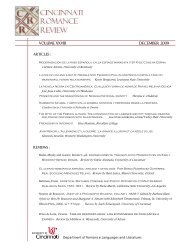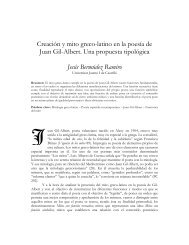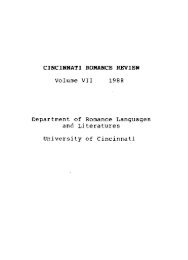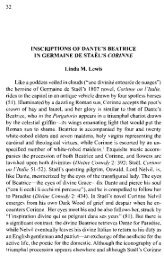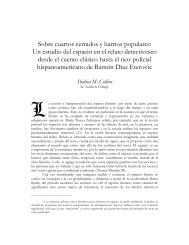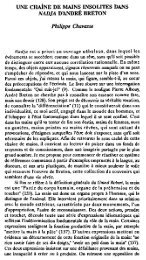Volume 30 (2011) - Cincinnati Romance Review
Volume 30 (2011) - Cincinnati Romance Review
Volume 30 (2011) - Cincinnati Romance Review
Create successful ePaper yourself
Turn your PDF publications into a flip-book with our unique Google optimized e-Paper software.
“Double Bind / Double Consciousness”<br />
in the Poetry of Carmen Colón Pellot<br />
and Julia de Burgos<br />
Sonja Stephenson Watson<br />
University of Texas, Arlington<br />
Carmen Colón Pellot and Julia de Burgos constructed a female literary<br />
poetics and created a space for the mulata as a writing subject instead of a<br />
written object in early twentieth-century Puerto Rican negrista literature.<br />
Because of their gender and the societal norms and limitations placed upon<br />
blacks, they each found it difficult to reconcile their heritage as mulatas in a white male<br />
Hispanic society. They each testify to the “double bind” of black female authors who<br />
strive to identify themselves as both women and as blacks. In her seminal article<br />
“Feminism and Afro-Hispanism: The Double Bind,” Rosemary Feal notes that the<br />
double bind of scholars when reading texts written by Afra-Latin American writers “is<br />
to uphold the dignity of all Afro-Latin American characters…while engaging in<br />
legitimate feminist practice” (<strong>30</strong>). Feal also notes that in order to study the intersection<br />
of race and gender in works by black Latin American female writers’s texts, we must<br />
adhere to the racial, historical, and social specificities in each country. She further<br />
explains that, “‘[a]lterity’ in feminist Afro-Hispanic scholarship has as its imperative the<br />
formulation of alternate interpretive practices, and it is through analyzing the link of<br />
race and gender that we can gain more complete access to that world of difference”<br />
(<strong>30</strong>). The double bind inherent in Afra-Hispanic literature is not only that of scholars<br />
but also of the authors themselves who comprise the focus of this study. The double<br />
bind of Colón Pellot and de Burgos compels us to return to W.E.B. Du Bois’s seminal<br />
essay on double-consciousness, The Souls of Black Folk (1903), where he presented the<br />
problem of duality that plagued blacks at the turn of the twentieth century:<br />
It is a peculiar sensation, this double-consciousness, this sense of always<br />
looking at one’s self through the eyes of others, of measuring one’s soul<br />
by the tape of a world that looks on in amused contempt and pity. One<br />
ever feels his twoness, an American, a negro; two souls, two thoughts,<br />
two unreconciled strivings; two warring ideals in one dark body, whose<br />
dogged strength alone keeps it from being torn asunder. (5)



